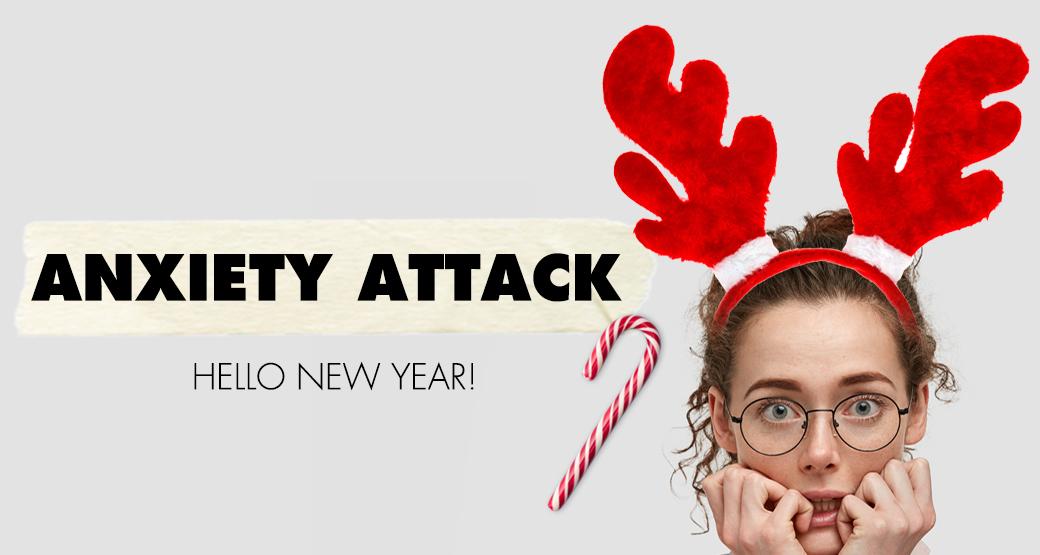The One About Anxiety attacks in 2021!
As 2021 is (finally) coming to an end, it’s time to leave some things behind with it. But before we can actually do this, we should first ask ourselves if we’re in the mental state to leave the past behind. We often forget to ask ourselves how we’re feeling and how we’re dealing with everything that is happening around us at the time. It’s true that the past years have been a “bit” extra difficult for everyone and no one was given enough time to process all the information regarding this “new” world that other decided we should live in. This could not possibly leave our mental health unaffected. I certainly don’t feel unaffected…

According to a newly published study (J. Lancet) showed that psychological distress, depression and anxiety were prevalent among both men and women half a year into the Covid-19 pandemic and well beyond the initial lockdown periods. They found that 42% of people in the study reported experiencing some mild psychological distress in the pandemic in 2020, compared to only 32% in 2018. Emotions can slip into anxiety and depression when negative feelings don't go away after a short period of time. The researchers also found women were more likely than men to report higher psychological distress during the pandemic -- especially anxiety.
Because it is holiday time I think I’m going to leave depression out of this blog for now… But since I’m sure that even during Christmas holidays you have found at least one thing to stress about, I’ve decided to shine a spotlight on anxiety and anxiety attacks and hope that you CAN’T relate. I hope that you’re one of these really chill dudes that never give a second thought about anything in life and your only worry is what to watch next on Netflix. But let’s face it; you’re probably not because life is not that simple. And living with anxiety is far from simple too.
So what’s anxiety after all?
Anxiety is an emotion characterized by feelings of tension, worried thoughts and physical changes like increased blood pressure. People with anxiety disorders usually have recurring intrusive thoughts or concerns. They may avoid certain situations out of worry. They may also have physical symptoms such as sweating, trembling, dizziness, a rapid heartbeat, overthinking, muscle tension or avoidance. In order to be diagnosed with an anxiety disorder you need to experience most of the aforementioned symptoms for 6 months.

If you’re living with anxiety, you might feel that your emotions overlap one another and you aren’t even sure how you feel anymore. You just want to be alone at home, in your safe space. You might be constantly worried that something is seriously wrong and it feels llik something bad is going to happen. Furthermore, at social gathering you might anticipate a panic attack and worry that you will embarrass yourself or draw attention to yourself. All you wish is to leave without saying anything to anyone. Moreover, you might be beyond exhausted but feeling on edge and “wired” at the same time.
Can you relate to any of these situations? Then you might be experiencing anxiety symptoms.
What you should do now then?
Well, the first step in tackling any mental health issue is to actually be open in the idea of helping yourself. Don’t ignore YOU! Don’t postpone YOU! Your mental health is as important as your physical health! So try to talk about it and seek for help. If a psychologist or psychiatrist is not the first option in your list (although I’d advise it), you can start with little ways to take care of your mental health this holiday season:
-get plenty of sleep
-set aside time for yourself to recharge
-make new traditions that bring you joy
-spend more time with people that make you feel calm
-acknowledge your feelings and give yourself grace
-give yourself permission to set boundaries and say no
-spend time in nature as much as you can and move your body in a way that feels good to you
-meditate

Happier Holidays!!! We’re here for you OVER-THINKER!!!
For you,
Eli
